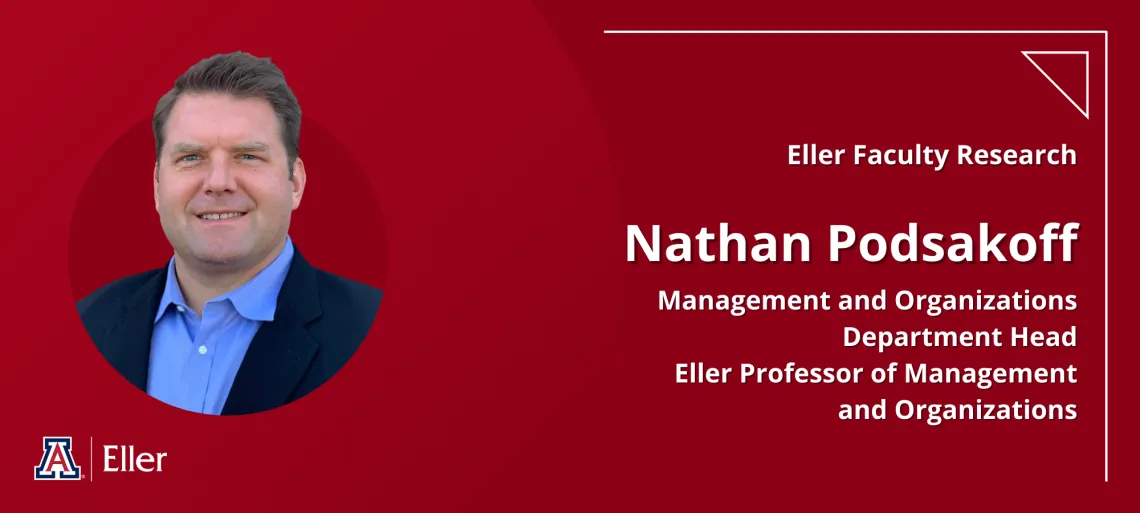University of Arizona Eller College of Management Professor’s Research on Potential Benefits of Workplace Stress Cited More than 5,000 times by Scholars

There is no doubt today’s employees have great cause to be stressed. Or causes, rather. Surveys indicate that the COVID-19 pandemic, telework requirements, and the “Great Reshuffling,” have magnified the effects of workplace stress felt by employees. While many people may view stress as purely negative, Nathan Podsakoff, Eller professor and head of the Department of Management and Organizations at the University of Arizona Eller College of Management, notes that there are potential benefits to some demands in the workplace.
Podsakoff has published multiple research articles that classify job demands into those that promote the accomplishment of work tasks and personal development (known as challenge stressors) and those that prevent the accomplishment of job tasks and growth (known as hindrance stressors). The notion that employee experience challenge and hindrance stressors, and that these stressors can have opposing effects on employees has been called a dominant perspective of organizational stress, and Podsakoff’s work has since been cited more than 5,000 times by scholars. Recently, Podsakoff worked with his colleagues to review the research published on challenge and hindrance stressors, which began about the time he started his doctoral program two decades ago.
In their recent article published in the “Annual Review of Organizational Psychology and Organizational Behavior”, Podsakoff and his colleagues detail the complex process that can lead work demands to produce beneficial effects for employees, explain why hindrances stressors have more powerful effects on employees (and are more memorable) than challenge stressors, and how even challenging demands cause employees to experience psychological and physical strains, like exhaustion and anxiety.
Podsakoff and his colleagues plan to use this review to lay the foundation for future research on employee stress, and they hope to influence scholars and practicing managers for the next two decades.

